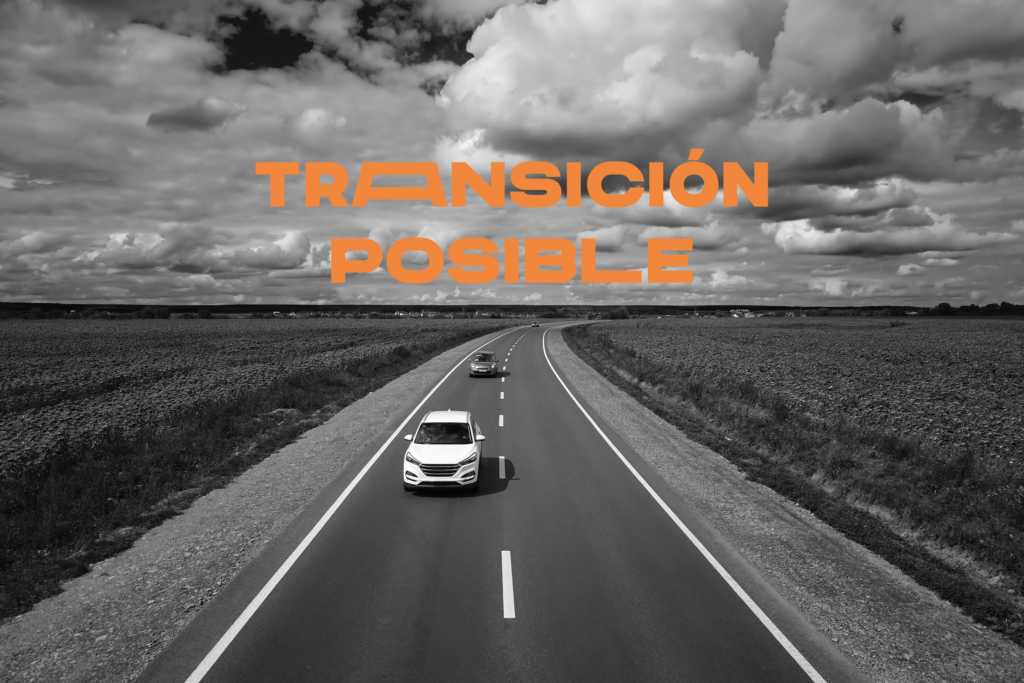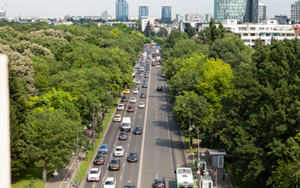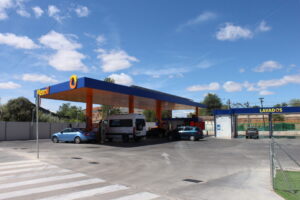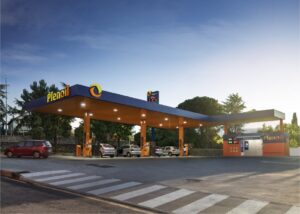- Close to 70% of drivers consider the charging infrastructure for electric cars in Spain insufficient.
- In Spanish households, diesel cars (49.6%) and gasoline cars (44.3%) continue to be the preferred means of transportation, followed by hybrids (9.5%) and electric cars (3%).
- 55.3% use their own car as a means of transportation – of which 12.4% use it professionally – and only 22.7% of Spaniards use public transportation.
- This survey is part of “Transición Posible,” a space for giving a voice to all stakeholders involved in the energy transition and addressing challenges towards decarbonization.
Madrid, June 14, 2023. Plenoil, a leading company in the automatic service station sector, has conducted a survey on the mobility habits and energy consumption of Spaniards as part of the Transición Posible project launched today. This initiative aims to articulate, through listening and dialogue, the needs of all stakeholders involved in the transition to a sustainable energy model to advance the fight against climate change. According to the Study on Energy Transition, half of Spanish drivers (50.3%) do not consider buying an electric vehicle in the coming years. Among the main reasons leading 1 in 2 adults to dismiss the option of purchasing an electric car are its high price (for 61.3% of respondents), the scarcity of charging points (46.6%), charging time (35.7%), electricity prices (32.6%), and the belief that such cars are not the future (27.4%). In terms of regions, people from the Basque Country, Cantabria, and Galicia are the least likely to consider buying an electric car. On the contrary, 39.1% of respondents are considering or find it possible to acquire an electric vehicle – although they do not confirm it – while only 9.7% believe they will. Additionally, considering that economic assistance can be requested for the purchase of an electric car, 50.2% of Spaniards would consider applying for it, while 26.7% would only apply if the assistance brought the price of the electric car closer to that of a gasoline or diesel one. In contrast, 23.1% would not apply for assistance under any circumstances. In response to the specific question about the perception of the development of the electric vehicle charging infrastructure in Spain, 70% of respondents consider it insufficient to be the main vehicle (36%) or totally insufficient (33.8%), while 15.5% believe it is sufficient for urban environments but not for long-distance journeys. “
As we move towards a more environmentally friendly model, at Plenoil, we strongly advocate for resource optimization in all our facilities with the aim of minimizing our impact on the sector. Thus, we are investing 8 million euros in the installation of electric vehicle charging points by the end of 2023, maintaining independence in setting the final sale price ,” says José Rodríguez de Arellano, CEO of Plenoil. “Despite our efforts, there is still much to be done. For example, in Spain, we currently have just over 30,000 charging points, which falls far short of the 80,000-100,000 expected in our country for this year,” he emphasizes. This Plenoil survey also highlights that in Spanish households, diesel cars (49.6%) and gasoline cars (44.3%) continue to be the preferred means of transportation, followed by hybrids (9.5%) and electric cars (3%). In response to the question “What is the main means of transportation you use to get around?” more than half of Spaniards (55.3%) mainly use their own car, of which 12.4% use it professionally for work. Those who prefer their own car are mostly men (60%, compared to 50% of women), over 25 years old, from middle or upper social class, workers, and residents in small municipalities – in the latter case, they do so because they have no alternative. Reasons why Spaniards choose their own car for transportation include comfort (51.8%), not having to wait for public transportation (49.2%), speed (48.7%), and the ability to go where they need to (45.8%). On the contrary, among the main reasons for not using their own vehicle are difficulties in parking (39.1%), lower cost (37.5%), and choosing less polluting means (28.9%). The second most used means of transportation is public transportation (22.8%) – an option chosen more by women in municipalities or cities with more than 200,000 inhabitants – while 16.9% of respondents claim to travel on foot. This option is chosen more by women (26%, compared to 19% of men), people from lower social classes, and those residing in large municipalities. On the contrary, the least used means are bicycles or scooters (3.3%) and car-sharing (0.8%). The profile of those who prefer less polluting means of transportation is mainly young people aged 25 to 34, from upper social classes, medium-sized municipalities (between 50,000 and 200,000 inhabitants), with medium or higher education, and residing in the eastern region.
A space for debate to make the energy transition a reality
Taking the data from this survey, Transición Posible is a space for listening and dialogue where Plenoil invites public administrations, business and productive fabric, and citizens to participate with the aim of identifying the handicaps that the energy transition may have in the current approach and jointly seeking solutions to these challenges so that the decarbonization process is possible and does not leave anyone behind. “The importance of progressing urgently towards clean energies is unquestionable, but there are still questions regarding the trajectory and timelines to reduce global carbon emissions,” says the CEO of Plenoil.
On the website www.transicionposible.es, José Rodríguez de Arellano acknowledges that the energy transition has different speeds, and there are sectors that are finding it more difficult or not even considering being able to make the necessary model change. “The transition can be possible, but we must overcome, together and without leaving anyone behind, the brakes it currently poses, giving rise to a listening process that articulates the needs of all stakeholders,” explains José Rodríguez de Arellano. “By offering at the lowest cost one of the necessary energies, at Plenoil, we take on a facilitating role to drive the transition, ensuring the stability of an essential service such as mobility,” he adds. As part of the Transición Posible project, Plenoil will lead the listening to interest groups involved in the energy transition and will develop, with the help of an expert in energy transition, a report that collects the main challenges that arise and possible joint solutions to achieve that Possible Transition.
Spanish households are supplied with traditional energy
On the other hand, the Study on Energy Transition also analyzes energy consumption in households. Thus, the main energy source that 9 out of 10 Spaniards have in their homes is traditional (93%), either electricity (49%), gas (5.8%), or both (38.2%), while for 7%, the energy source they use is renewable, either only renewable energy (3.7%) or renewable energy combined with gas and/or electricity (3.3%). On the other hand, among respondents who use traditional energy, 57.7% do not believe that they will change their usual provider of gas and electricity for another that guarantees a more renewable origin of said energy, while 29.3% would like to change but cannot afford it economically, and 13% think they will. “
At Plenoil, we are pioneers in installing photovoltaic panels throughout our network with the aim of achieving a self-consumption of 36% in 2023 and avoiding the emission of more than 900 tons of CO2. Thanks to an agreement, the rest of the energy we consume is produced from 100% renewable sources ,” says the CEO of the company. Another aspect to consider in the energy transition is digitization. Almost all respondents (93.5%) have carried out digital procedures. Despite this, 41% of Spaniards claim to feel uncomfortable using digital means in their daily lives – of which 13.2% need help to carry out such procedures.
About Plenoil
Plenoil is a leader in the new generation service station sector. With the opening of its first gas station in 2015, the company was born with the goal of making refueling safe, convenient, automated, high-quality, and affordable. To achieve this, the company offers its customers automated gas stations that provide fuels of the highest quality and comply with current environmental regulations.





